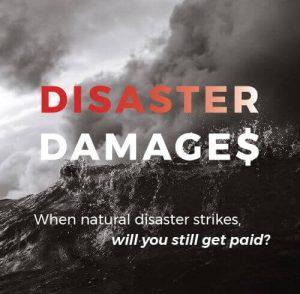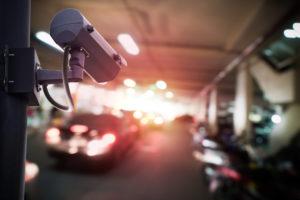
Whether it’s a hurricane you watch form a week before it hits or a tornado that strikes without a moment’s notice, one thing that holds true for all natural disasters is that you should expect the unexpected. With power out, roads closed, and property damaged, sometimes it isn’t always clear when things will get back to normal.
But through it all, you still need a paycheck. What are you rights as an employee when disaster strikes? Here’s what you need to know about employee rights during inclement weather.
Do You Get Paid During a Natural Disaster?
Like most legal questions, there isn’t a “one size fits all” answer to this question. Payment during a natural disaster is governed by the federal law called the Fair Labor Standards Act (FLSA) and will depend on whether you are an exempt or nonexempt employee.
Although there are some small exceptions, generally this FLSA employee laws work like this:

For a free legal consultation, call 800-537-8185
Nonexempt Employees
When it comes to your workplace being closed by your employer because of a natural disaster, nonexempt employees are not required to be paid if the employer can’t provide hours. This means you won’t receive a paycheck if you don’t work and you may need to look into other sources of income discussed below.
Exempt Employees
If you are an exempt employee under the FLSA, your employer is required to pay you for time that the workplace is closed due to a natural disaster. However, your employer can also require you to use paid leave to cover those missed days. So you will still receive a paycheck, but you may lose some PTO in the process.
Click to contact our personal injury lawyers today
Delayed Paycheck
What if you are entitled to a paycheck but it’s delayed? You can file a claim with the Wage and Hour Division of the US Department of Labor by calling the WHD toll-free help line at 1-866-4US-WAGE (1-866-487-9243).
There are also some other situations where the issue of payment during a natural disaster can be a bit fuzzy. If you aren’t sure about your rights under inclement weather labor laws, it might be a good idea to contact an attorney and ask some questions.
On Call
Usually employees must be paid if they are required to be on the premise and not allowed to leave.
Waiting Time
For example, waiting for the power to come back on at the office. If employees are at their workplace waiting, they should be paid for the waiting time.
Working Remotely
Even if your employer doesn’t usually allow this, if they are requiring you to work and remote is the only way to do that, you should be paid.
Volunteering
If your employer asks you to “volunteer” to clean up the workplace after a natural disaster, there is a very good chance you should be getting paid. If you aren’t required to volunteer or you volunteer to help someone else at your employer’s request the issue is a little less clear. In these cases it’s best to seek legal advice.
Can You be Fired During a Natural Disaster?
Unless you’ve given your employer another valid reason to fire you, such as misconduct, you can’t be fired just because a natural disaster occurs. Even if you complain on social media about how your employer handles a disaster, you may have a claim to the National Labor Relations Board if you are fired or disciplined on this basis.
Family Medical Leave
What if you can’t come back to work right away after the disaster has passed? While employers are not required to give you time off to do things like rehab your house after a disaster, you may still have some protections. If you or a family member has suffered mental or physical problems as a result of the natural disaster, you may have protections under the Family Medical Leave Act, assuming you are otherwise eligible for FMLA.
Disabilities
Similarly, if you are suffering from these problems and need reasonable accommodations to return to work, your employer is required to provide those under the Americans with Disabilities Act. In that same vein, if you return to work and your workplace is a hazard due to the disaster, your employer is required to provide you a safe workplace under rules provided by the Occupational Safety and Health Administration. The National Labor Relations Act (NLRA) mandates that employees who have a good faith belief that their workplace is not safe should not be required to work.
Government Disaster Response Agencies
Importantly, if you miss work due to service in the National Guard or another governmental disaster response agency, you are likely protected from disciplinary action under the Uniformed Services Employment and Reemployment Rights Act of 1994 (USERRA). This act guarantees the right to return to work for military service members as long as they have provided their employer some advance notice that they serve in the military.
Damaged Workplace
If your employer wants to bring you back to work but can’t get the workplace open and you aren’t entitled to wages under the FLSA discussed above, you may be eligible for temporary unemployment while your employer works to get the business open again. Even if you are eventually laid off, disaster related unemployment claims are usually not charged to the employer’s account.
However, you should be aware that if your workplace eventually permanently closes because of the disaster, your employer will be exempt from federal laws that requires some employers to provide 60 days of notice to employees. In cases of natural disaster, the Worker Adjustment and Retraining Notification Act (WARN) requires employers to give as much notice as possible.
Questions?Call 800-537-8185
to find a Morris Bart office near you.





